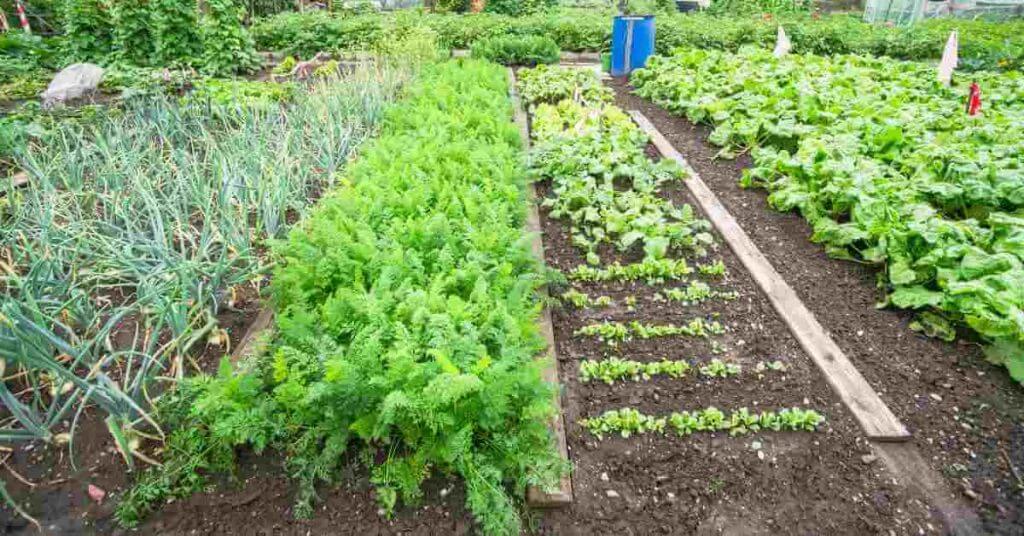
No Dig Gardening – A Beginner’s Guide
The ultimate guide to reap the benefits of no-dig gardening, complete with a step-by-step guide on building your own.
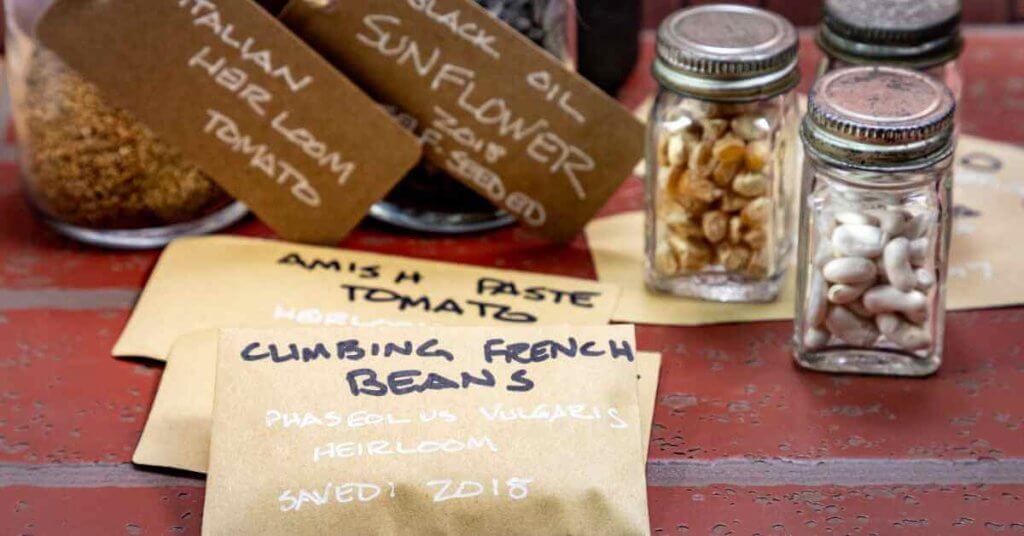
As we collectively tilt towards home gardening, driven by a pursuit for organic produce and a closer bond with our environment, questions such as “What are heirloom seeds?” are now common in many gardening conversations.
Amidst this green resurgence, however, confusion often lingers around the distinctions between heirloom and organic seeds, further complicated by the offerings of large seed corporations that market both heirloom and hybrid seeds under the organic umbrella.
Your time investment to understand and cultivate heirloom seeds will undoubtedly be rewarded. Not only does it enhance the biodiversity of your surroundings and ensure the continuity of historic plant lineages, but the flavor and quality of heirloom vegetables cannot be matched even by modern hybrid plants.
This article will demystify heirloom seeds, the good, the bad, and the tasty. We will explore how you can successfully grow heirloom seeds in your garden, the pros and cons of doing so, and what to look out for to ensure your heirlooms remain true to their genetic roots generation after generation.
Like an engagement ring from your grandmother or photographs from your great-great uncle, an heirloom is anything of value (be it sentimental or financial) passed down from one generation to another.
The same is true for heirloom seeds (sometimes known as heritage seeds). Heirloom seeds are traditional varieties of plants that have been passed down through generations and are not genetically modified, often valued for their flavor, genetic diversity, and adaptation to local growing conditions.
The term “heirloom” simply refers to any seed from a plant that has been passed down through generations, meaning heirlooms can encompass a wide array of plants, including fruits, flowers, herbs, and even some grains. So your grandma’s heirloom tomato is the same tomato her grandma had – a taste of both the past and the future.
The value of an heirloom depends on what the grower is looking for; usually, this could be its exquisite flavor, productivity, adaptability, or hardiness.
So how many generations of careful planting are required for a seed to be considered an heirloom? While opinions vary, seed sellers generally consider a seed variety heirloom if it has existed for at least 50 years.
Some plant experts, however, only classify seeds as heirlooms if they were cultivated before the Second World War, as this was when farms in North America and Europe turned to modern monoculture farming, where one crop type is grown in vast expanses of land.
Because of their careful reproduction, heirloom seeds are not used in modern large-scale agriculture. Heirloom seeds are also not wild – they are deliberately cultivated for specific characteristics.
So why are heirloom seeds becoming so popular? They are increasingly valued for their flavor, nutritional value, and historical significance. They are also known for their genetic stability and unique characteristics, ideal for gardeners looking to preserve biodiversity and historical plant varieties.are
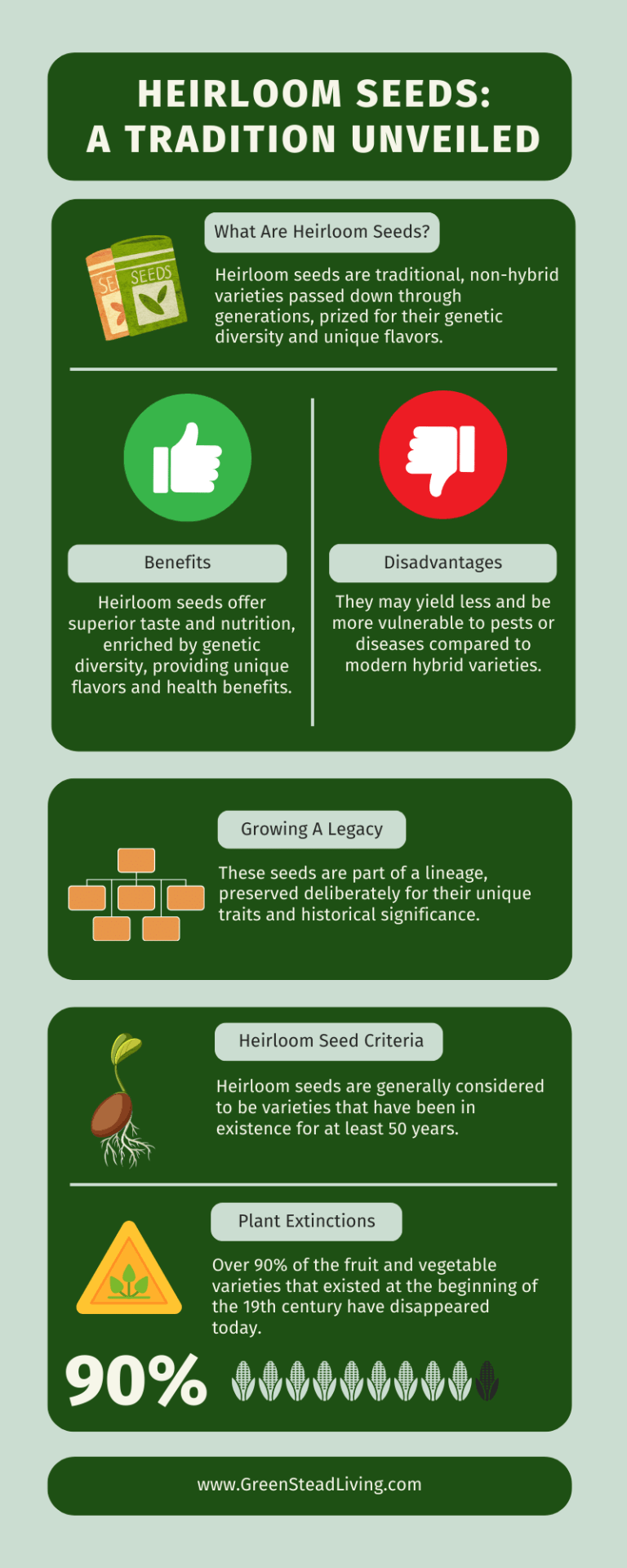
How do heirloom seeds differ from other common seeds, such as hybrid seeds?
Hybrid seeds, produced by cross-pollinating two different but related plants to create a new plant variety, are favored among cultivators whose main aim is productivity and profitability.
By blending the genes of two different plants, the most beneficial traits from both are combined. As a result, hybrid plants can be bred for disease resistance, uniformity, or higher yields.
As you can imagine, such hybrid traits are excellent for commercial agriculture, where they produce higher yields, improve nutritional value, or craft resilience to extreme temperatures or weather.
On the other hand, hybrid plants do not create seeds that can be reliably saved and replanted to produce the same variety. The offspring of hybrids typically do not retain the parent plants’ desirable traits, leading to unpredictable crop characteristics in subsequent generations.
As a result, small-scale gardeners must purchase hybrid seeds every year to repeat a specific set of desired traits, whereas the purity of heirloom seeds allows the same traits generation after generation.
Many small-scale farmers also do not like the reduction of genetic diversity in crops that hybrid seeds produce, since they are bred for uniformity and specific traits.
While hybrid seeds offer advantages like higher yields, disease resistance, and uniformity, the choice between hybrids and heirlooms depends on the cultivator’s goals, including taste, sustainability, seed sovereignty, and the preservation of genetic diversity.
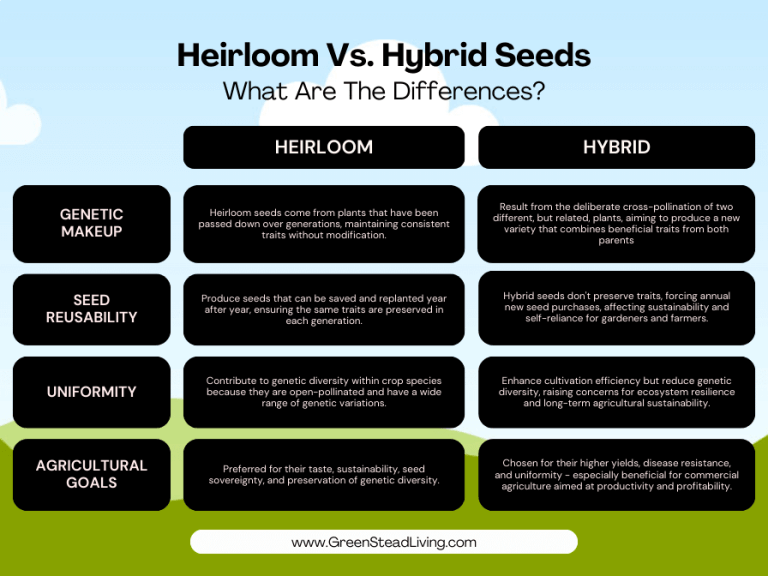
One of the key reasons gardeners are turning to heirloom seeds is the depth of flavor heirloom fruits and vegetables can produce. These flavors are simply not possible in hybrid seeds yet, although, with advances in technology and genetic engineering techniques, this might not be the case forever.
One reason your grandma would have bothered to pass down a specific heirloom seed is likely because it tasted so good. Before bigger was better, it all boiled down to how good the food tasted.
The broad genetic base of heirloom seeds naturally results in a greater variety of flavors and textures.
Heirlooms are also prized for their adaptability; certain heirloom tomato varieties can acclimate to a particular locale in just two to three growing seasons, exhibiting enhanced vigor, improved yield, superior flavor, and a hardy resistance to diseases.
As a result, heirloom seeds will prove invaluable for those wishing to optimize their sustainability with a permaculture garden.
Since they have been grown in the same local climate and soils for decades, they are typically easier to grow than hybrids, assuming the climate and soil conditions remain similar to previous generations.
Since an estimated 75% of food crop varieties have disappeared due to the spread of industrial agriculture, their contribution to the conservation of plant biodiversity has become a significant intangible benefit among gardeners. Heirloom seeds therefore carry cultural and historical significance, representing the agricultural heritage of different communities around the world.
Compared to hybrid seeds, many heirloom varieties may not produce as uniformly as modern hybrids due to their genetic makeup and the way they are propagated. As a result, the size, shape, and yield of the fruits or vegetables can vary more widely from plant to plant.
While heirlooms are hardy and resilient when grown in the climate they have adapted to, they are limited to where they can be successfully grown, meaning your choice of plant is limited to your climate. Gardeners outside these areas may struggle to achieve good results without significant soil amendments or climate control measures.
Heirloom varieties often have lower yields compared to their hybrid counterparts, which are specifically bred for higher productivity among other traits.
Heirlooms must also be watched closely to ensure they are not cross-pollinated with other plants accidentally – if you live near large open corn fields, for example, corn pollen can be blown across the yields and cross-pollinate your prized plants, resulting in cross-contamination of your plant’s seeds.
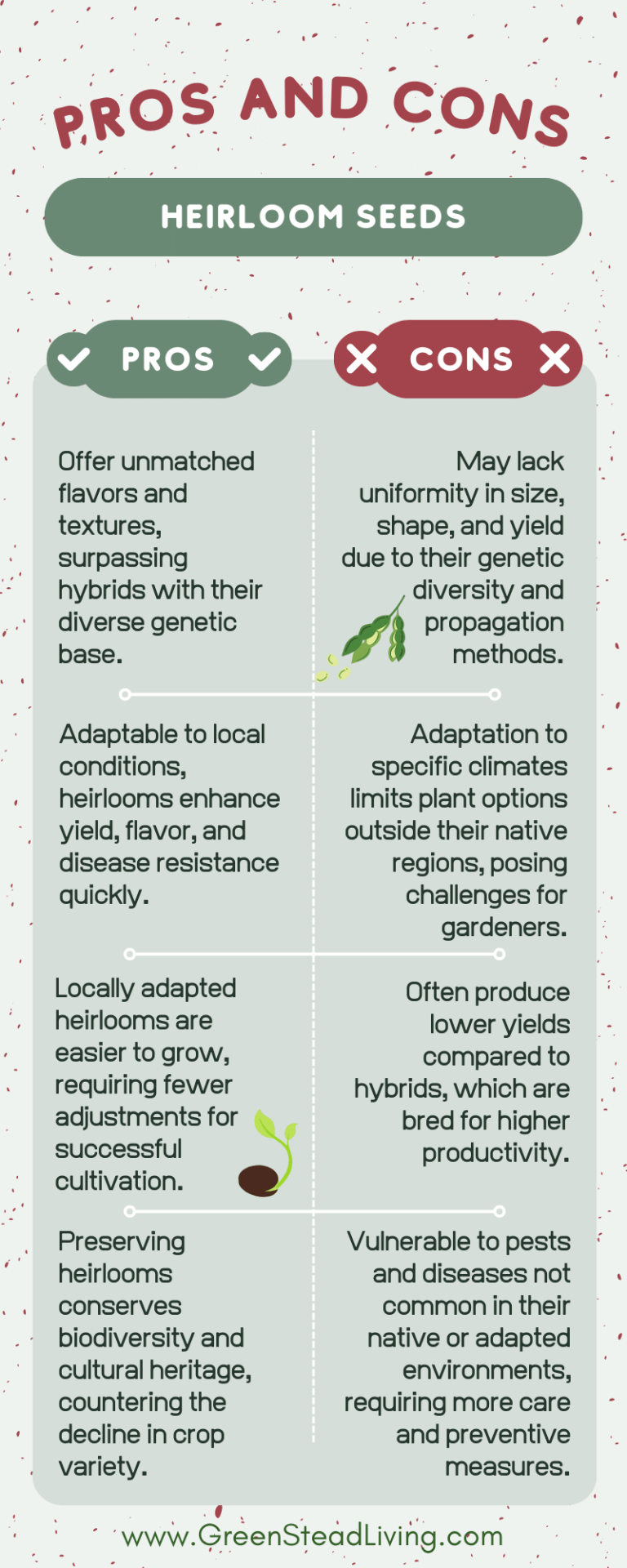
All heirlooms are open-pollinated plants, yet not all open-pollinated plants qualify as heirlooms. Open pollination involves a natural mechanism where insects, wind, birds, and humans assist in transferring pollen from one flower to another, facilitating the reproduction of both age-old heirloom seeds and newer hybrid varieties.
An heirloom plant is distinguished by its ability to be pollinated by another plant of the same variety or to achieve self-pollination, thus maintaining the genetic attributes of its lineage. The seeds collected from these plants are notable for retaining the traits of their forebears, ensuring the preservation of their distinctive qualities across generations.
Conversely, cross-pollination between different plant varieties produces hybrid offspring, which can occur naturally or be human-assisted. However, seeds from hybrid plants do not reliably reproduce the traits of their parent plants.
Heirloom seeds are, by definition, not genetically modified because they are open-pollinated, meaning they reproduce naturally through pollination by insects, birds, wind, or human intervention, without the deliberate modification of their genetic material in a laboratory setting.
But just because heirloom seeds have not been genetically modified does not mean there is not some level of GMO contamination in them. For those trying to grow heirloom corn near large GMO corn fields, there is a great chance you will have GMO corn pollen blown into your plants.
This also makes it vital to buy your heirloom seeds from a reputable source who takes care of their seed production. Most quality heirloom seed companies are aware of this problem and take active precautions to avoid contamination of their seeds.
Fortunately, you don’t have to worry about accidentally buying GMO seeds because they’re only available to commercial farmers, not home gardeners.
Heirloom seeds are not inherently organic – whether a particular seed is classified as organic or not depends entirely on how the seeds are grown or produced.
An heirloom seed will be classed as organic if it adheres to the standards outlined by the USDA’s National Organic Program, meaning they are cultivated in certified organic soil and are only treated with fertilizers and pest control methods approved under organic regulations.
If you wish to purchase organic heirloom seeds, ensure the packaging bears the USDA Organic symbol.
The short answer is no, heirloom seeds are not inherently harder to grow than other seeds.
Naturally, some heirloom seeds will be harder to grow than others; many heirloom tomatoes and lettuces are relatively easy to grow while heirloom melons, celery, and some corn require more work.
When grown in their preferred environments (i.e., the climate and soil they have acclimated to), heirloom plants are relatively easy to grow, showing resilience to disease and pests while being well-suited to native soils.
Trying to grow an heirloom tomato from the rainy East Coast states in arid Arizona, however, will likely prove tricky.
So heirlooms are not inherently harder to grow than any other seed, so long as they are grown in environments that match where they have adapted to. Gardeners who are willing to work with their local climate, and soil conditions, and who practice sustainable gardening techniques may find that heirloom varieties are not necessarily harder to grow and can be very rewarding.
The viability of heirloom seeds, like all seeds, varies depending on the type of plant and the conditions under which the seeds are stored. In general, seeds need to be kept in cool, dry conditions to maximize their lifespan.
The information below can serve as a rough guide to how long you can expect heirloom seeds to remain viable under ideal storage conditions:
One to two years for seeds of onions, parsnips, and some other root vegetables, which tend to have the shortest shelf life.
Two to three years for seeds of corn, peas, beans, and chives, which have a moderate lifespan.
Three to five years for seeds of carrots, leeks, asparagus, turnips, and spinach.
Four to five years for seeds of tomatoes, cucumbers, melons, eggplant, and peppers, which are among those that can last longer.
Five years or more for seeds of certain herbs and flowers, which can have a surprisingly long viability if stored properly.
The key to extending the life of heirloom seeds is proper storage. Seeds should be kept in a cool, dry place, ideally at temperatures between 32°F (0°C) and 41°F (5°C) with low humidity.
Many gardeners use airtight containers and store them in a refrigerator or a cool basement while adding a few desiccant packets can help absorb moisture and further protect the seeds.
While seeds may remain viable for several years, their germination rate (the percentage that sprouts) typically decreases over time. So, best practice is to use your heirloom seeds as soon as you reasonably can.
It is hard to guarantee a certain genetic lineage in seeds; how are you going to know that the seeds you purchased are genuine heirlooms?
Combined with the fact that there are no labeling requirements for heirloom seeds and that there isn’t even a universally accepted definition of how long a lineage must be tracked before it can be considered a heirloom, you must be extra diligent about where you purchase your seeds.
This is why many experts recommend buying seeds only from sources that you are sure about, or larger companies that have the resources, knowledge, and track record of producing quality heirloom seeds.
Among the largest and most respected online companies are Baker Creek Heirloom Seeds, Annie’s Heirloom Seeds, and Seed Savers Exchange.
How seeds are harvested and stored can also impact the subsequent generation of plants, as can viral diseases, another reason why going with a larger company can offer greater reassurance, as they have the resources to adequately store the seeds.
Heirloom seeds have been around, passing from one generation of gardeners to the next, preserving not just the physical traits of the plants but also the stories, flavors, and traditions that come with them.
But it’s not just about nostalgia. Heirloom seeds are the underdogs in the battle for biodiversity. In a world where agricultural practices have pushed us towards a monoculture mindset, these seeds represent a library of genetic diversity that ensures that we don’t put all our eggs in one basket, agriculturally speaking, proving crucial for food security and the resilience of our ecosystem.
And let’s not forget the flavors. If you’ve ever bitten into a ripe, heirloom tomato fresh from the vine, you’ll know what I’m talking about. There’s a depth and complexity there that supermarket varieties can’t even dream of matching.
Of course, gardening with heirloom seeds isn’t without its quirks. They can be a bit like that eccentric uncle who’s set in his ways; they’ve adapted to their original growing conditions and might not take kindly to new environments. But that’s part of the adventure! Gardening with heirloom seeds is a dance with the past, a test of your gardening skills, and a commitment to preserving diversity.
Whether you’re a seasoned green thumb or just dipping your toes into the soil, consider giving heirloom seeds a spot in your garden. Trust me, your taste buds (and the planet) will thank you.
The same is true for heirloom seeds (sometimes known as heritage seeds). Heirloom seeds are traditional varieties of plants that have been passed down through generations and are not genetically modified, often valued for their flavor, genetic diversity, and adaptation to local growing conditions.
Hybrid seeds, produced by cross-pollinating two different but related plants to create a new plant variety, are favored among cultivators whose main aim is productivity and profitability.
On the other hand, hybrid plants do not create seeds that can be reliably saved and replanted to produce the same variety. The offspring of hybrids typically do not retain the parent plants’ desirable traits, leading to unpredictable crop characteristics in subsequent generations.
Heirlooms are not inherently harder to grow than any other seed, so long as they are grown in environments that match where they have adapted to. Gardeners who are willing to work with their local climate, and soil conditions, and who practice sustainable gardening techniques may find that heirloom varieties are not necessarily harder to grow and can be very rewarding.

The ultimate guide to reap the benefits of no-dig gardening, complete with a step-by-step guide on building your own.
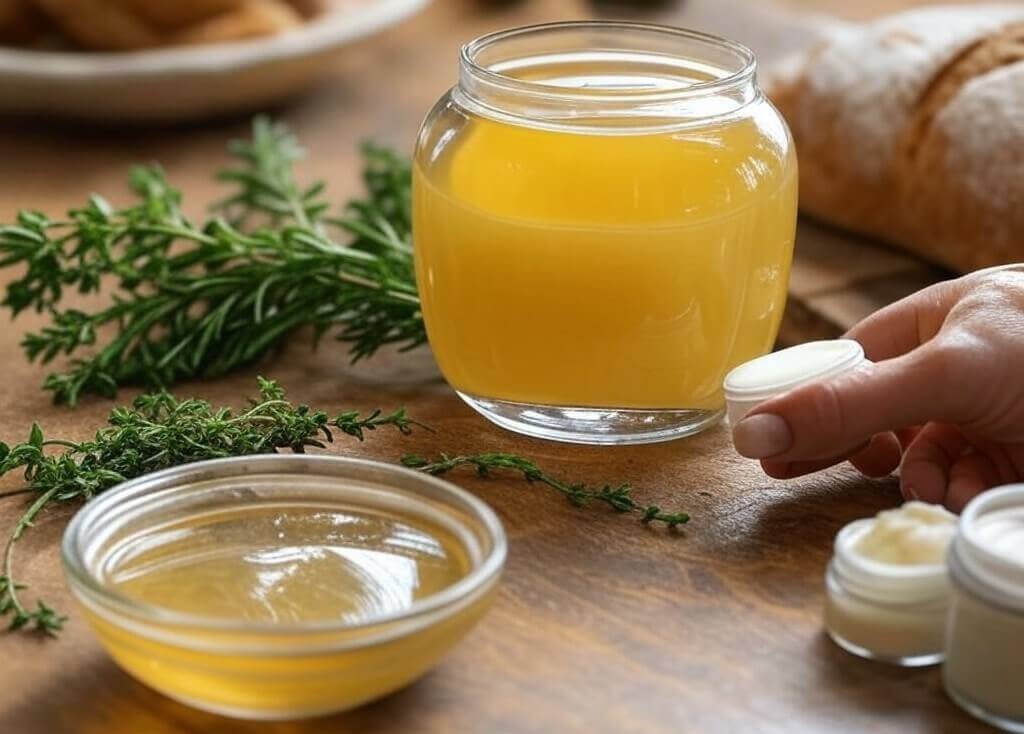
The benefits of beef tallow include deep hydration, rich nutrients, and a natural alternative to synthetic moisturizers for healthy skin and cooking.

The differences between grass-fed vs. grain-fed beef are vast. From nutritional value to taste and sustainability, here are the key differences.
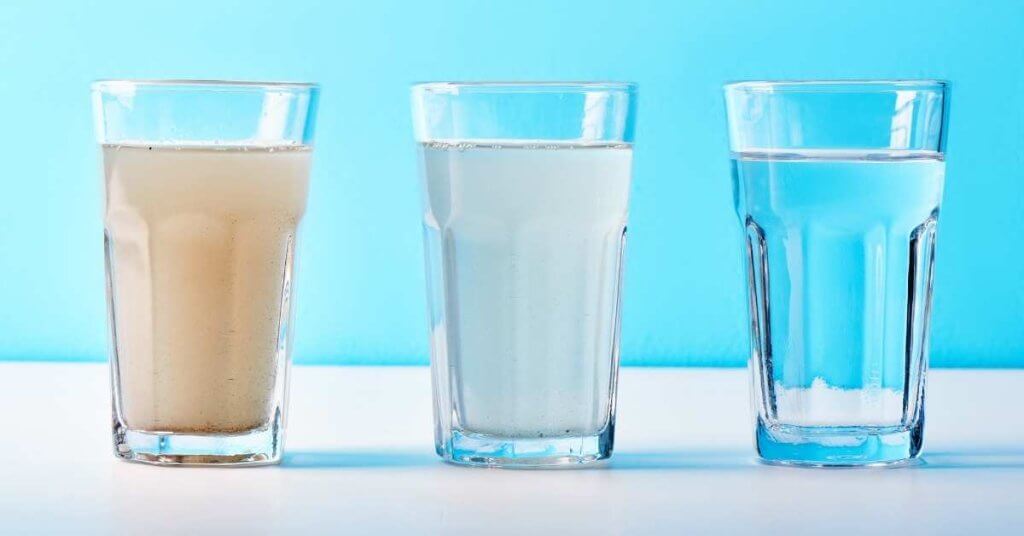
Reverse osmosis water filtration systems offer the best way to obtain clean and healthy tap water for drinking.
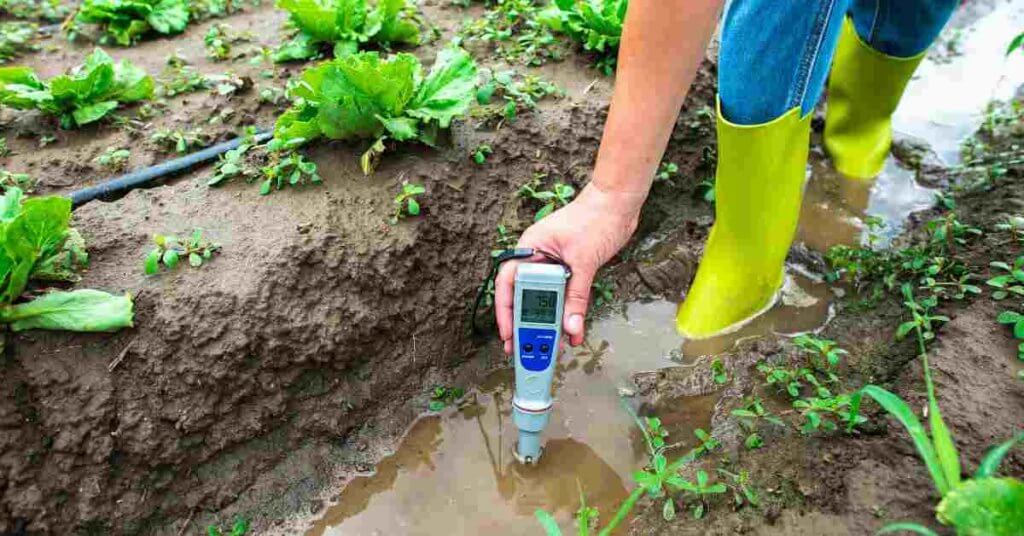
Learn how to test soil pH with these 3 easy techniques, whether at home or from a professional laboratory.
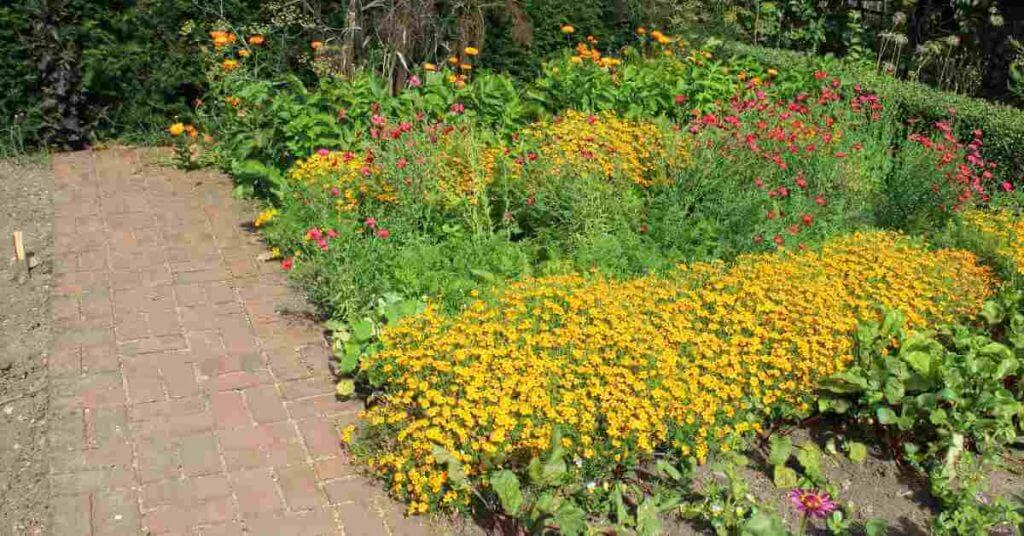
An overview of everything you need to know about what is companion planting, and what plants should be included and avoided to help your garden thrive.